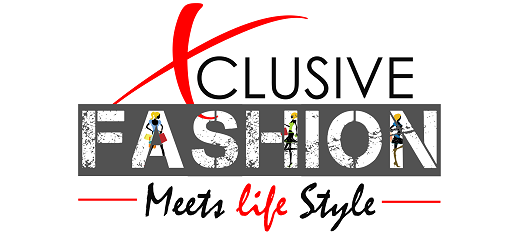Most Popular

Digital Marketing Course: The Ultimate Guide to Thriving Online
Sharing is caring!
Digital marketing is a transformative realm that has revolutionized the way businesses interact with customers. Over the past decade, we have seen the rapid growth of digital marketing channels such as search engines, social media, email marketing, and more. As the digital landscape continues to evolve, the need for skilled digital marketers has become more pronounced than ever.
If you’re keen on navigating the dynamic digital world, a comprehensive digital marketing course can be your gateway to success. In this guide, we delve deep into what such a course entails, its benefits, and the core competencies you can expect to gain.
What is Digital Marketing?
Digital marketing refers to the use of online platforms and tools to promote products, services, and brands. Unlike traditional marketing, which relies on channels such as print, television, and radio, digital marketing predominantly uses digital channels, offering a more interactive and personalized experience to the audience.
Evolution of Digital Marketing:
The digital landscape has transformed radically over the past few decades. With each passing year, digital marketing strategies, platforms, and tactics have evolved in response to technological advancements, changing consumer behaviors, and a shifting online ecosystem. Let’s delve into the significant milestones that have shaped the evolution of digital marketing.
1. The 1990s: Birth of the Digital Era
- 1990: The term “Digital Marketing” is believed to have been first used. Around this time, the first search engine, Archie, was developed.
- 1993: The first clickable banner went live, heralding the era of digital advertising.
- 1994: Yahoo was launched, bringing organization to the vast amounts of information on the web.
- 1996: Search engines like HotBot, LookSmart, and Alexa were introduced. This period also saw the birth of more advanced tools for marketers, like email marketing platforms.
2. The 2000s: Rise of Social Media and Google Dominance
- 2000: Google launched its AdWords service, which later became Google Ads, marking the rise of pay-per-click (PPC) advertising. This move revolutionized online advertising, allowing businesses to reach targeted audiences effectively.
- 2003: LinkedIn and MySpace were launched, sowing the seeds for the social media marketing revolution.
- 2004: Facebook debuted, and it would soon transform the way brands connect with their audiences. Around the same time, Google introduced Gmail, providing another platform for email marketers.
- 2006: Twitter came into existence, introducing brands to real-time customer engagement.
- 2007: The introduction of the iPhone changed how consumers interacted with the online world, marking the onset of the mobile revolution.
3. The 2010s: Mobile Optimization and Content’s Reign
- 2010: Instagram was launched, opening a visual-centric platform for marketers. This period also saw a major emphasis on search engine optimization (SEO) and the importance of quality content.
- 2011: Google introduced the Panda update, which emphasized quality content over keyword-stuffed, low-quality pages. Brands started to realize the value of content marketing.
- 2012: The surge of data-driven marketing began. Tools that utilized consumer data for personalized marketing campaigns became integral.
- 2015: Mobile search surpassed desktop search in volume. This shift led to a massive focus on mobile optimization, with Google’s mobile-friendly update emphasizing the importance of responsive web design.
- 2016: Chatbots on platforms like Facebook Messenger allowed businesses to provide instant customer service. Artificial Intelligence (AI) began playing a more significant role in personalized marketing strategies.
4. The 2020s and Beyond: Data Privacy and AI Integration
- 2020: With the increase in data breaches and privacy concerns, regulations like the General Data Protection Regulation (GDPR) and the California Consumer Privacy Act (CCPA) were enforced, emphasizing data protection.
- Emerging Trends: The increasing integration of AI and machine learning in digital marketing strategies allows for even more personalization. Voice search optimization, augmented reality (AR) ads, and interactive content are also shaping the future of digital marketing.
Benefits of Digital Marketing:
From broader reach to cost-effectiveness and measurable results, digital marketing offers an array of advantages over its traditional counterpart.
Why Should You Take a Digital Marketing Course?
In an era where the digital landscape dictates business dynamics and consumer behavior, understanding digital marketing has never been more crucial. Whether you’re an entrepreneur, a traditional marketer, or someone looking to enter the job market, a digital marketing course can significantly empower you. Here are compelling reasons to consider enrolling in one:
1. Skyrocketing Demand for Digital Marketers
The global shift towards online platforms has led to a surging demand for skilled digital marketers. With companies increasing their digital presence, they’re on the lookout for professionals who can effectively utilize online platforms for brand promotion, lead generation, and customer engagement.
2. Diverse Career Opportunities
Digital marketing is a multifaceted domain comprising various subfields, including:
- Search Engine Optimization (SEO): Ensuring websites rank higher on search engines.
- Social Media Marketing: Crafting strategies to engage users on platforms like Facebook, Instagram, and Twitter.
- Content Marketing: Creating valuable content to attract and retain customers.
- Pay-Per-Click (PPC) Advertising: Managing paid ad campaigns on platforms like Google Ads.
- Affiliate Marketing: Earning commissions by promoting other companies’ products.
Each of these areas offers unique job roles and growth opportunities.
3. Potent Tool for Entrepreneurs
If you’re an entrepreneur or a small business owner, understanding digital marketing can be a game-changer. A course can help you navigate online marketing on your own, saving costs and ensuring that your business has an impactful online presence.
4. Stay Relevant in the Changing Job Landscape
Traditional marketing strategies alone no longer cut it. Professionals in related fields like PR, sales, and advertising can immensely benefit from digital marketing knowledge. It ensures they remain relevant in a job market that’s increasingly emphasizing digital skills.
5. High Earning Potential
Given the high demand and the specialized skill set required, digital marketers often command competitive salaries. With experience and a robust portfolio, the earning potential in this field can be quite lucrative.
6. Flexibility and Adaptability
Digital marketing skills open doors to flexible career options. Many roles in this domain, such as content creation, social media management, and SEO consultancy, can be done remotely, allowing for a better work-life balance.
7. Measurable Results and Data-Driven Strategies
Unlike traditional marketing, digital marketing offers the advantage of precise measurability. Skills acquired from a digital marketing course allow professionals to make data-driven decisions, optimizing campaigns in real-time based on analytics and metrics.
8. Continuous Learning and Evolution
The digital realm is ever-evolving. A course in digital marketing not only equips you with current best practices but also fosters a mindset of continuous learning, ensuring you stay updated with the latest trends and tools.
Components of a Comprehensive Digital Marketing Course
A well-rounded digital marketing course should cover a broad spectrum of topics to ensure that students gain a holistic understanding of the domain.
- Search Engine Optimization (SEO): Learn how to optimize websites to rank higher on search engines, driving organic traffic and enhancing visibility.
- Pay-per-click (PPC) Advertising: Grasp the art of creating effective ad campaigns on platforms like Google Ads and Bing Ads.
- Social Media Marketing: Dive deep into promoting brands on platforms like Facebook, Instagram, Twitter, and LinkedIn.
- Email Marketing: Understand how to create compelling email campaigns that foster customer engagement and retention.
- Content Marketing: Discover the power of storytelling and how quality content can drive traffic and convert leads.
- Analytics and Reporting: Learn how to use tools like Google Analytics to measure the effectiveness of your campaigns and make data-driven decisions.
- Affiliate Marketing: Understand how to earn commissions by promoting other people’s products or services.
- Digital Marketing Strategy: Develop the capability to create a cohesive digital marketing plan that aligns with business objectives.
Choosing the Right Digital Marketing Course
With a plethora of courses available, selecting the right one can be daunting. Here are some pointers to guide your decision.
- Accreditation: Ensure that the course is recognized by relevant authorities and industry bodies.
- Course Content: Ensure that the curriculum covers all vital aspects of digital marketing, as mentioned above.
- Trainers’ Expertise: Check the credentials of the trainers. They should have substantial experience in the industry and a track record of successful campaigns.
- Reviews and Testimonials: Go through reviews and testimonials from past students to gauge the course’s effectiveness.
- Practical Experience: Opt for courses that offer hands-on experience, such as live projects or internships.
Conclusion
Digital marketing is a realm that’s ever-evolving, driven by technological advancements and changing consumer behaviors. To thrive in this dynamic landscape, one must be equipped with the right knowledge and skills. A comprehensive digital marketing course can be your stepping stone to achieving this. Whether you’re an aspiring digital marketer, an entrepreneur, or just someone looking to upskill, understanding the nuances of digital marketing can unlock a world of opportunities.
With the digital realm showing no signs of slowing down, now is the perfect time to embark on this learning journey. By choosing the right course and being committed to the learning process, you’ll be well on your way to marking your digital footprint.
FAQs on Digital Marketing Courses
Q1: What is the duration of a typical digital marketing course?
Answer: The duration varies based on the comprehensiveness and depth of the course. Short courses can last a few weeks, while more comprehensive ones can span several months. Additionally, there are diploma and degree programs that can last up to a year or more.
Q2: Do I need a background in marketing to enroll in a digital marketing course?
Answer: Not necessarily. Most foundational courses are designed to accommodate beginners without any background in marketing. However, some advanced courses might require foundational knowledge of digital marketing concepts.
Q3: Are online digital marketing courses as effective as in-person courses?
Answer: Yes, many online courses offer high-quality content, interactive sessions, and hands-on projects that make the learning experience as enriching as in-person courses. The choice often comes down to personal preference and learning style.
Q4: Will I receive a certification upon completing a digital marketing course?
Answer: Most reputable digital marketing courses offer a certification upon completion. This certification can bolster your resume and validate your skills in the domain.
Q5: Is digital marketing suitable for individuals who aren’t tech-savvy?
Answer: While being tech-savvy can be an advantage, it isn’t a prerequisite. Many aspects of digital marketing, such as content creation and strategy development, don’t require deep technical knowledge. Moreover, foundational courses often cover essential tech concepts to bring everyone up to speed.
Q6: Can I implement the skills I learn from a digital marketing course for my own business?
Answer: Absolutely! Many entrepreneurs and small business owners take digital marketing courses to enhance their online presence, attract more customers, and boost sales without relying solely on external agencies.
Q7: How do I choose the right digital marketing course?
Answer: Consider factors like curriculum depth, trainer expertise, course reviews, hands-on opportunities, and accreditation. It’s essential to select a course that aligns with your career goals and learning preferences.


































